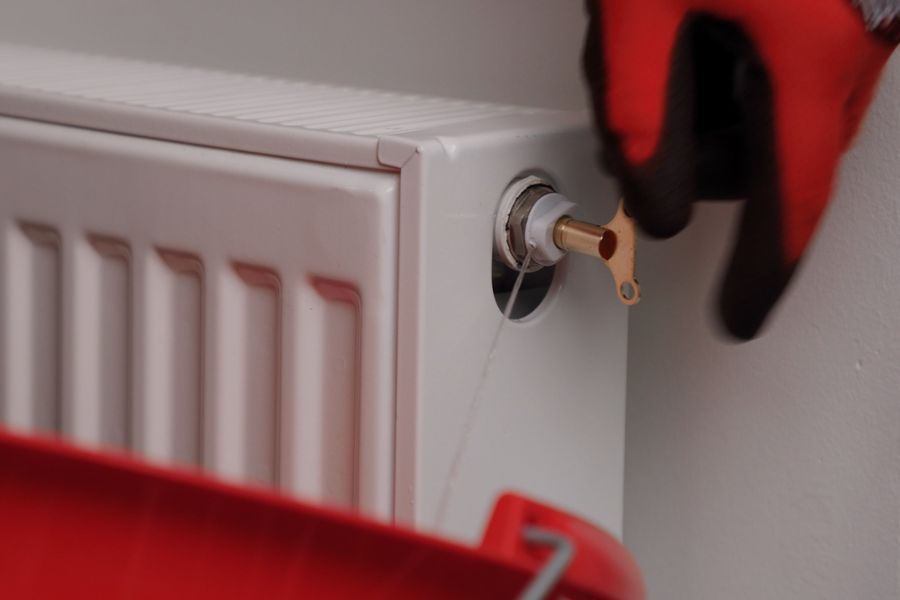New boiler guides
When to replace your boiler
16 Jun 2025 • 6 minutes

New boiler guides
16 Jun 2025 • 6 minutes

Operational Improvement Manager

If you’ve had your boiler for a while, then it’s worth looking out for signs that you might need a boiler replacement. Funny noises, low efficiency, and regular breakdowns can all indicate that your boiler is no longer performing at its best.
This article will help you spot the warning signs and understand when a boiler replacement is the right decision.

Replacing your boiler is a big investment, so you’d expect it to last a long time. The average lifespan is usually around 10 to 15 years, but that depends on a few different factors, such as the brand of boiler you have, its service history and how often it’s used.
Not sure if your boiler is on its last legs? These nine common signs could mean it’s time to consider a replacement. Catching them early can help you avoid unexpected breakdowns and costly repairs.
The only time your boiler should make any noise is when it’s firing up. When running, there’ll be a low, constant hum that you probably don’t even notice, that’s exactly how it should be.
Anything that resembles banging, gurgling, clunking or whirring could signal a problem, so make sure you switch your boiler off to help stop any further damage. You should also get an expert to check it over as soon as you can.
Sometimes, minor issues could be the cause, and these are generally easy to fix. For example, if there’s a buildup of dirt and debris, a powerflush to clean the system can help solve the problem.
If you fancy doing some investigating of your own, our simple step-by-step guide to fixing noisy boilers will help you get to the bottom of things.

As your boiler gets older, a common issue you might notice is that it stops heating your home or water as well as it used to. Simply put, the older your boiler gets, the less energy efficient it becomes. So you’re still paying the same to run it, but not getting as good an output.
Did you know that replacing an old G-rated boiler with a new A-rated boiler could save you up to £540 a year on your energy bills*? Increasing boiler efficiency is a key way to lower costs and get better results from your heating system.
Make sure you continue getting your boiler serviced annually and don’t forget to bleed your radiators regularly to remove any trapped air that could lead to corrosion within your system. You might find this gives your boiler a new lease of life–for a little while, at least!
If you’ve got a leaking boiler then it’s a sure sign that an internal component is broken. It’s usually a seal or valve, but sometimes it could be something more serious, like the corrosion of the heat exchanger.
Whatever the outcome, your boiler should never leak water, so make sure you turn your boiler off, clear up the water and call in an expert to get it fixed before it leads to something more serious. If it’s left, it could cause even more damage to internal components or potential structural damage to your property.
If you’ve got a boiler that breaks down a lot, you’ll soon start to find that it’s less cost-effective to keep repairing it. In the long run, you’d be better off investing your money in a new, more reliable one. Older boilers often break down regularly due to the need for replacement parts, but over time, parts can become less available, making it even harder and more expensive to keep repairing your boiler when something goes wrong.
A healthy boiler will never give off any bad smells, so if you notice that yours has an odd odour, then get in touch with a Gas Safe registered engineer as soon as possible. We’ve got experts on hand nearby who can look at the problem for you.
However, if the smell is sulphurous or eggy, and stronger when your boiler is in use, this could mean you have an escape of gas or fumes. In this case, you should turn the boiler off straight away, open any windows, and evacuate to a safe location outside the home. Then call the emergency gas line on 0800 111 999.
It’s always a good idea to have an audible carbon monoxide (CO) detector in the vicinity of your boiler, usually in the kitchen. CO detectors should have a CE mark, proving they have met EU safety requirements, and be approved to British Standard EN 50291. CO detectors should be tested regularly by pressing the test button to ensure they're operating correctly.
If your boiler keeps losing water pressure, it could point to a more serious underlying issue, such as a leak in the system or a failing internal component. While low pressure can sometimes be fixed, persistent problems may mean your boiler is no longer functioning efficiently.
If topping up the pressure becomes a regular task, it may be more cost-effective in the long run to consider a replacement.
If you’ve noticed your energy bills creeping up without a clear reason, your boiler could be to blame. As we’ve already mentioned, older boilers tend to be less efficient, meaning they use more energy to produce the same amount of heat. This drop in efficiency often leads to higher running costs. So, if your energy usage hasn’t changed, but your bills have, it may be a sign that your boiler is ageing and needs replacing.
As boilers get older, finding replacement parts becomes more difficult—and often more expensive. Manufacturers may stop producing components for outdated models, which can delay repairs or drive up costs. If you frequently face issues sourcing parts or your engineer struggles to find what’s needed, it might be more practical and cost-effective to replace your boiler altogether.
As we’ve mentioned, boilers usually last around 10 to 15 years. If yours is getting close to that age—or has already passed it—it might be time to start thinking about a replacement.
Even if it’s still working, older boilers often aren’t as efficient and can cost more to run and repair. Upgrading to a newer model could save you money and give you extra peace of mind.
The cost of a new boiler varies depending on a few different things, including:
Don’t forget to consider the installation fees too – this isn’t a DIY job, so you’ll need to get a Gas Safe registered engineer to do it for you.
It’s one of the most common questions homeowners ask—and the answer depends on a few important factors. To help you decide what’s best for your home and your budget, we’ve highlighted the key things to consider:
Taking these points into account can help you decide whether it makes more sense to repair or replace your boiler.
If you're struggling with the cost of a new boiler, you may be eligible for help through the ECO (Energy Company Obligation) scheme. This government-backed initiative is designed to help eligible households in the UK improve energy efficiency by offering free or heavily subsidised boiler replacements. To find out if you could qualify, take a look at our quick guide to boiler grants.
If you’re unsure about whether to repair or replace your boiler it’s always worth getting professional advice from a heating engineer.
In most cases, fitting a new boiler takes one to two days. A straightforward like-for-like replacement can often be completed in just one day.
However, if you’re switching boiler types (e.g. from a system boiler to a combi) or relocating the unit, the installation may take longer, typically up to two days.
Your installer will give you a clearer timeline based on your specific setup.
If you’ve had your boiler for a long time, or it starts acting strange—making noises, giving off bad smells, starts leaking or constantly breaking down, then it sounds like it might be time to start looking to replace your boiler.
A new boiler is a big investment, but if you’re constantly paying out to get it fixed, then you could be better off in the long run getting it replaced.
Always make sure your finances stack up before you commit to anything and don’t forget, we have flexible payment options available on selected models to help you spread the cost when replacing your boiler.
Is your boiler over 10 years old? Has it been causing you endless problems that leave you out of pocket? If the answer is yes, then it sounds like it’s time to start thinking about replacing your boiler with something more reliable and energy efficient.
If your boiler is on the blink and you’re not sure where to start your search for a replacement, BOXT are here to help.
We’re working together with BOXT, one of the largest boiler installation companies in the UK, to help you find the best boiler for your home.
BOXT makes choosing the perfect new boiler for your home easy with a fixed price quote on your screen in just 90 seconds.
Our help & advice articles cover Plumbing, Home heating, Electrical, Energy-saving and Home maintenance.